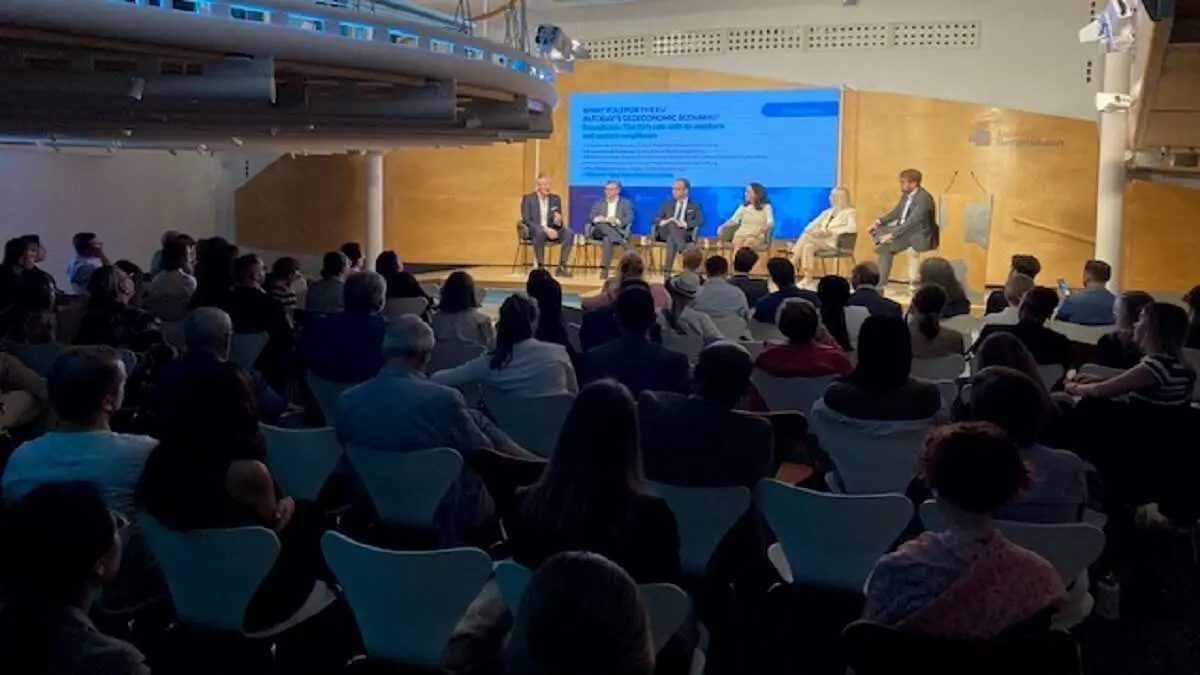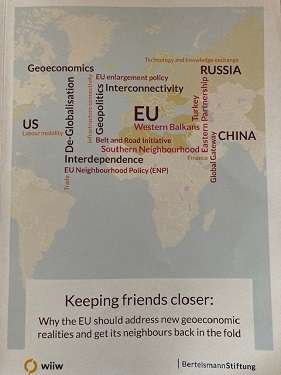Caring for Europe's Eastern and Southern Neighbours

Russia's invasion of Ukraine has disrupted the European Union's progress and plans, which has had to devote most of its energies to counteracting the consequences of a war whose end is not on the immediate horizon, while consolidating its disengagement from Russia, which began in 2014, following President Vladimir Putin's seizure of the Crimean peninsula. However, the resulting new geopolitical scenarios should not allow the EU to disengage from its immediate neighbourhood to the east and south, with whom it has strong economic ties that unfortunately do not translate into equivalent political influence.
This is the first conclusion of an extensive and in-depth study by the Bertelsmann Foundation and the Vienna Institute for Economic Studies (wiiw), presented in Madrid in collaboration with the Elcano Royal Institute, in a debate that was as intense as it was profound.
The report focuses on two areas: Turkey and the Balkans, including of course Ukraine itself, with which the EU is strongly interconnected in five key areas: trade, finance, technology, infrastructure and labour mobility. However, despite this, important gaps have been detected, which are being exploited by China to establish and increase its influence in such a way as to undermine that of the EU and even make the lure of a forthcoming EU membership less attractive for countries that have always seen such integration as their highest political aspiration. The most emblematic case is that of Turkey, the country that has been waiting the longest for Brussels to resume talks that have now been practically abandoned following Turkish President Recep Tayyip Erdogan's reluctance to implement an Islamist presidentialist regime that is increasingly distant from the acquis communautaire, especially in the unavoidable area of freedom of expression.
Bertelsmann experts such as Christian Hanelt and Miriam Kosmehl, as well as wiiw deputy director Richard Grieveson, point out in the report that the "carrot" that the EU presented to candidate countries in the 1980s and 1990s, in which, in exchange for radical political transformations, the promise of prosperity, doubled by the strength of membership of a powerful union, was certain to those who became full members, has lost much of its appeal.

However, the EU itself has had to substantially modify its conditionality clauses and increase distrust towards candidates who promise to accept the full acquis communautaire but, once integrated, have declined in deeds to fully comply with it, as in the cases of Hungary and Poland.
The signatories of the very extensive study recommend that the EU, while safeguarding its collective interests, should use its undeniable economic clout to considerably increase its political influence. To this end, they call for the EU to maximise trade with Turkey and the Balkans; to use its privileged financial position to promote positive change in these countries; to develop their technological competitiveness to achieve both greater integration and harmonisation with European standards; to promote the establishment of regional infrastructure in these regions in the immediate neighbourhood to boost their energy transition; and to pursue, through enhanced dialogue, a new common policy on migration.
At the same time, the EU should also strengthen its alliance with the United States (without ruling out preparing to go it alone), rebalance its great asymmetry with China and end its energy-dependent relationship with Russia, and ultimately disengage altogether.
The debate sparked in Madrid is sure to be followed up in Brussels and other European capitals. This is because, as noted at Bertelsmann's Madrid headquarters, there are many who believe that Turkey will never join the EU, especially if Erdogan revalidates his mandate, and those who hesitate to break completely with Russia, even with a Putin in power, unpunished for the crimes committed in Ukraine.

